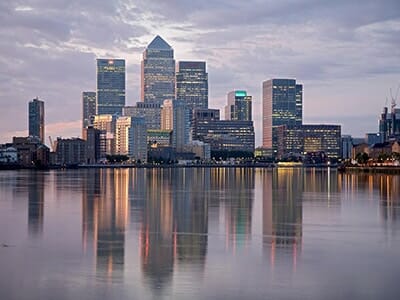
London property is in trouble, but that’s not necessarily bad news for everyone
Fluctuations in the real estate market caused by the UK’s vote to leave the European Union are likely to be shorter-lived and less severe than many investors fear, and Asian markets could gain increased attention from investors following the unexpected disruption in the United Kingdom, according to a report released this week by LaSalle Investment Management.
The correction in real estate pricing is expected to be largely restricted to the UK over the next 18 months, and medium-term capital inflows into real estate will only be interrupted, not reversed, the property investment management firm found in its mid-year Investment Strategy Annual (‘ISA’) 2016.
Following the historic vote to break away from the European Union last month the UK’s property market, which had been a magnet for international capital, has seen the suspension of trading in £15 billion ($19.8 billion) across at least six UK property funds, after investors rushed to cash in the real estate investment vehicles in the face of post-Brexit worries.
New Economic Challenges May Favor Real Estate as an Asset Class
With economies in many locations continuing to face headwinds and central banks keeping interest rates low, LaSalle expects continued strong demand for real estate assets.
“The downward re-rating of global growth rates, inflation expectations and interest rates in 2016 means that the “triple low” macro environment will persist for several more years in the EU and Japan,” said Elysia Tse, Head of Research and Strategy for Asia Pacific at LaSalle. When rates and bond yields are low and capital markets are volatile, real estate usually gets the benefit of capital flows for being a relatively stable, yet higher yielding, asset class.
Unfortunately for owners of London property, stable assets may not yet include properties in the UK’s capital. Just this month, TH Real Estate, which manages property investment firm Henderson’s £3.9 billion UK Property PAIF fund, put 440 Strand in London on the market for £220m, and Aberdeen Asset Management has put the largest asset held by its £3.2bn UK Property Fund, 355 Oxford Street in London, on the market for £145m.
Both fund managers put the assets up for sale after earlier having been forced to freeze redemptions of their property funds.
Europe’s Loss Could be Asia’s Gain
LaSalle sees the new level of uncertainty in the UK as acting in favor of Asian property markets. “If more volatility or uncertainties arise in other parts of the world, Asia Pacific’s relatively stable collection of nation states and treaties could be viewed more favorably by international investors,” Tse noted.
In Asia-Pacific, the investment firm believes that the fallout from Brexit will be limited. LaSalle points out that the UK and EU are not key trading partners for most Asian nations, where intra-regional trade has outpaced trade with other parts of the world since the global financial crisis, and believes that, in general, countries in the region still have considerable policy ammunition to support their economies.
Leave a Reply